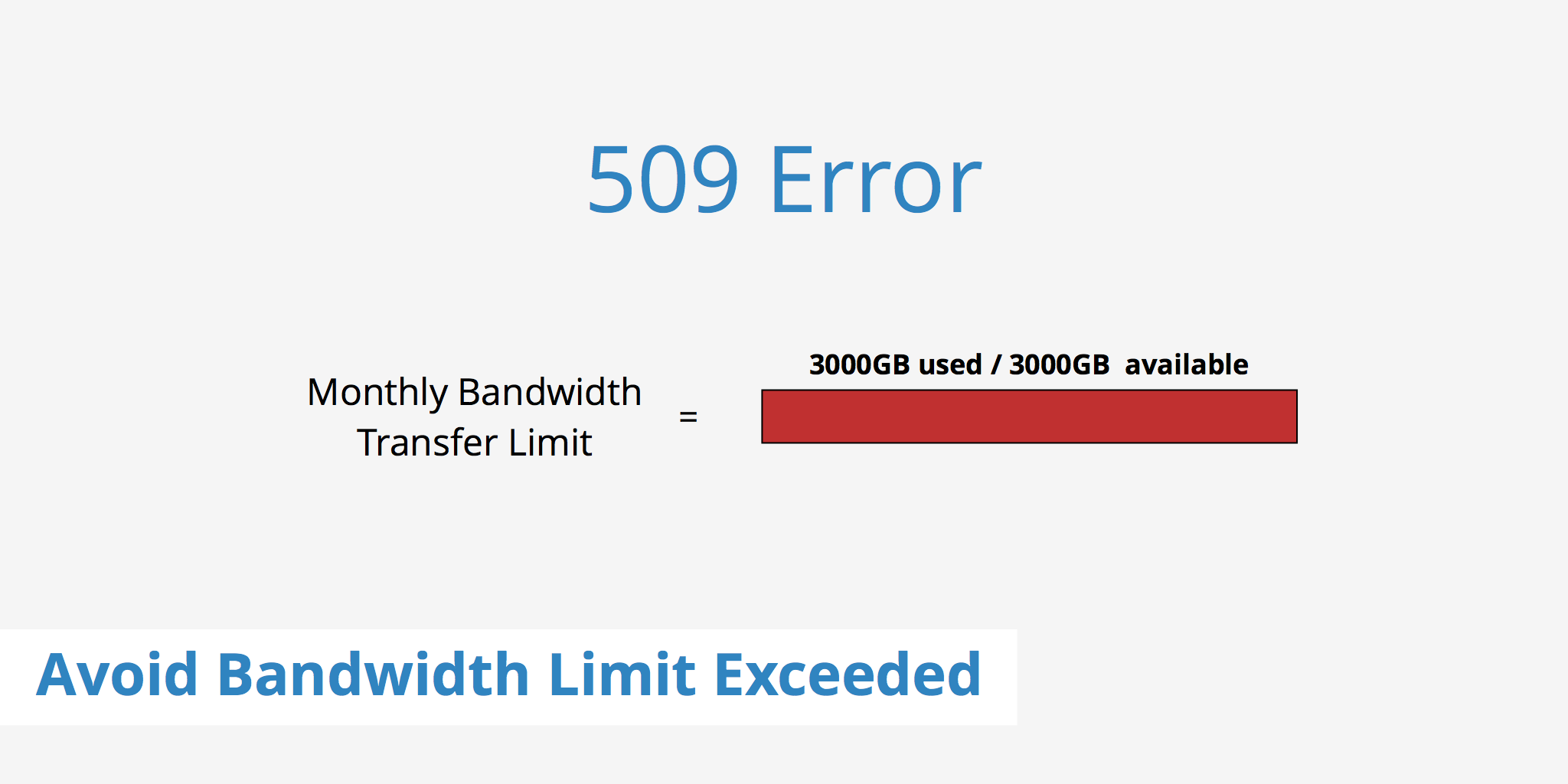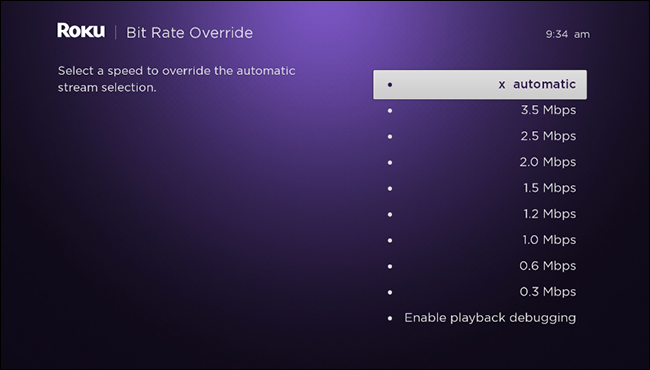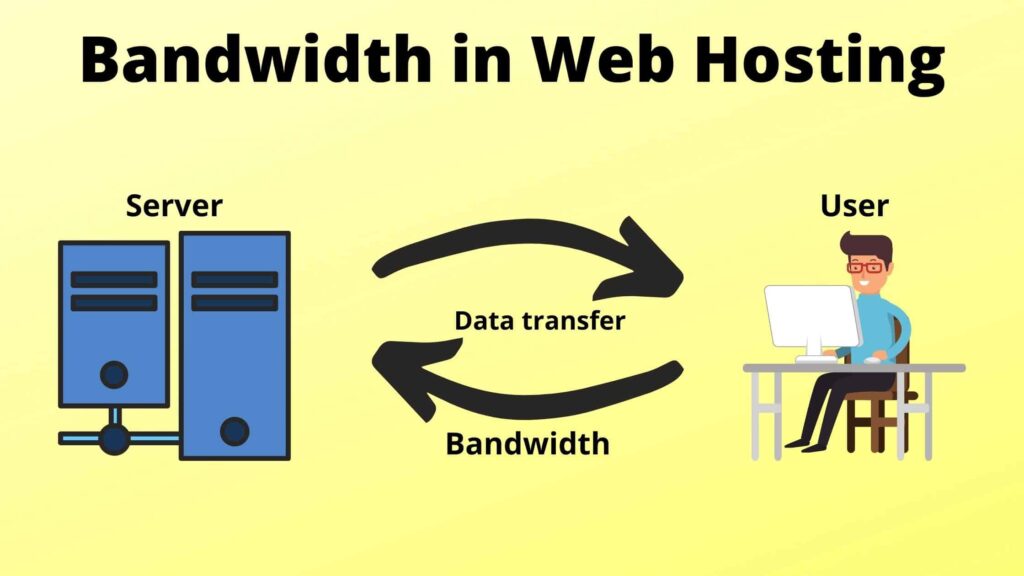As we navigate through the digital landscape, we often come across the term “bandwidth limit exceeded”. It’s a common message that you may see when you’re browsing the internet, streaming videos or downloading files. But what does it really mean? In simple terms, it refers to a situation where you’ve used up all the data that’s been allocated to you by your internet service provider (ISP).
In today’s world, where we heavily rely on the internet for our daily activities, understanding bandwidth limit exceeded is crucial. It not only affects our online experience but can also impact our wallets. In this article, we’ll delve deeper into what bandwidth is, how it works, and what happens when you exceed your limit. So, whether you’re a tech-savvy individual or someone who’s just getting started with the internet, fasten your seatbelts and read on.

What Does Bandwidth Limit Exceeded Mean?
Bandwidth limit exceeded is a message displayed when data transfer exceeds the maximum amount of data allowed for a given connection. It can occur when downloading large files, streaming video, or when a website experiences an unusually high amount of traffic. This message can be displayed by a web server or service provider, and it is important to understand the implications of this message.
What Causes Bandwidth Limit Exceeded?
Bandwidth limit exceeded is typically caused by using more data than what is allocated for a particular connection. This can be for a variety of reasons, such as downloading large files, streaming videos, or when a website experiences an unusually high amount of traffic. Bandwidth limit exceeded usually occurs when the data transfer exceeds the maximum amount of data allowed for a given connection.
It is also possible for bandwidth limit exceeded to be caused by a service provider. If a service provider has set a limit on the amount of data that can be used, then exceeding this limit can result in the bandwidth limit exceeded message being displayed. It is important to understand the terms and conditions of a service provider when it comes to data transfers and the amount of data that is allowed.
What Are the Consequences of Bandwidth Limit Exceeded?
When the bandwidth limit is exceeded, it can result in a variety of consequences. Depending on the service provider and the type of connection, it can result in a slower connection speed. Additionally, it may mean that the service provider has to impose restrictions on the amount of data that can be used. This can mean that some services may be unavailable for a period of time, or that some services may be slower than usual.
In some cases, the consequences of bandwidth limit exceeded can be more serious. In some cases, the service provider may terminate the connection if the limit is exceeded multiple times. Additionally, it is possible for a service provider to impose fines or other penalties if the limit is exceeded too often.
It is important to understand the terms and conditions of a service provider when it comes to data transfer limits and the consequences of exceeding them. Understanding the consequences of exceeding the data limits can help ensure that data transfers are not disrupted and that any potential penalties are avoided.
Frequently Asked Questions about Bandwidth Limit Exceeded
Bandwidth Limit Exceeded is an error message that appears when a user’s internet traffic exceeds the maximum amount of data allowed by their internet service provider. It typically occurs when a user downloads large files, streams video or audio, or visits multiple pages at once.
What is Bandwidth Limit Exceeded?
Bandwidth Limit Exceeded is an error message that appears when a user’s internet traffic exceeds the maximum amount of data allowed by their internet service provider. It typically occurs when a user downloads large files, streams video or audio, or visits multiple pages at once. The message may also appear when a user attempts to access a web page or application that is not optimized for their connection.
What causes Bandwidth Limit Exceeded?
Bandwidth Limit Exceeded is caused by a user’s internet service provider (ISP) restricting the amount of data that can be used each month. The amount of data allowed varies from ISP to ISP, but it is usually measured in gigabytes (GB). When a user exceeds their bandwidth limit, the ISP will usually block access to the internet until the user pays for additional data usage.
What are the consequences of exceeding the bandwidth limit?
The consequences of exceeding the bandwidth limit depend on the ISP. In some cases, the ISP may simply block access to the internet until the user pays for additional data usage. In other cases, the ISP may charge the user an additional fee. Additionally, the user’s connection may be slowed down or their access to certain websites or applications may be restricted.
What can I do to avoid exceeding the bandwidth limit?
To avoid exceeding the bandwidth limit, users should keep track of their data usage by monitoring the amount of data they are downloading and uploading each month. Additionally, users should be careful when streaming video and audio and limit their usage of streaming sites. Finally, users should check with their ISP to ensure that the bandwidth limit is suitable for their needs.
What are the alternatives to exceeding the bandwidth limit?
Alternatives to exceeding the bandwidth limit include using a Virtual Private Network (VPN) to encrypt data, using data compression software to reduce the amount of data transferred, and using an unlimited data plan offered by some ISPs. Additionally, some ISPs offer packages with higher bandwidth limits for users who need more data. Finally, users may be able to switch to an ISP with more generous data caps.
How To Fix the “509 Bandwidth Limit Exceeded” Error
In conclusion, bandwidth limit exceeded is a common issue faced by internet users, and it occurs when the amount of data transferred between the website server and the user’s device exceeds the allowed limit. This can result in slow loading times or even complete website downtime, which can be frustrating for users. However, there are several ways to overcome this issue, such as upgrading internet plans, reducing the amount of data transferred, or optimizing website content.
It is important for internet users to understand what bandwidth limit exceeded means and the impact it can have on their browsing experience. By taking the necessary steps to manage their internet usage and optimize their website content, users can avoid this issue and enjoy a seamless online experience. As technology continues to advance, it is essential for users to stay informed and adapt to changes in internet usage to ensure they are getting the most out of their online experience.




